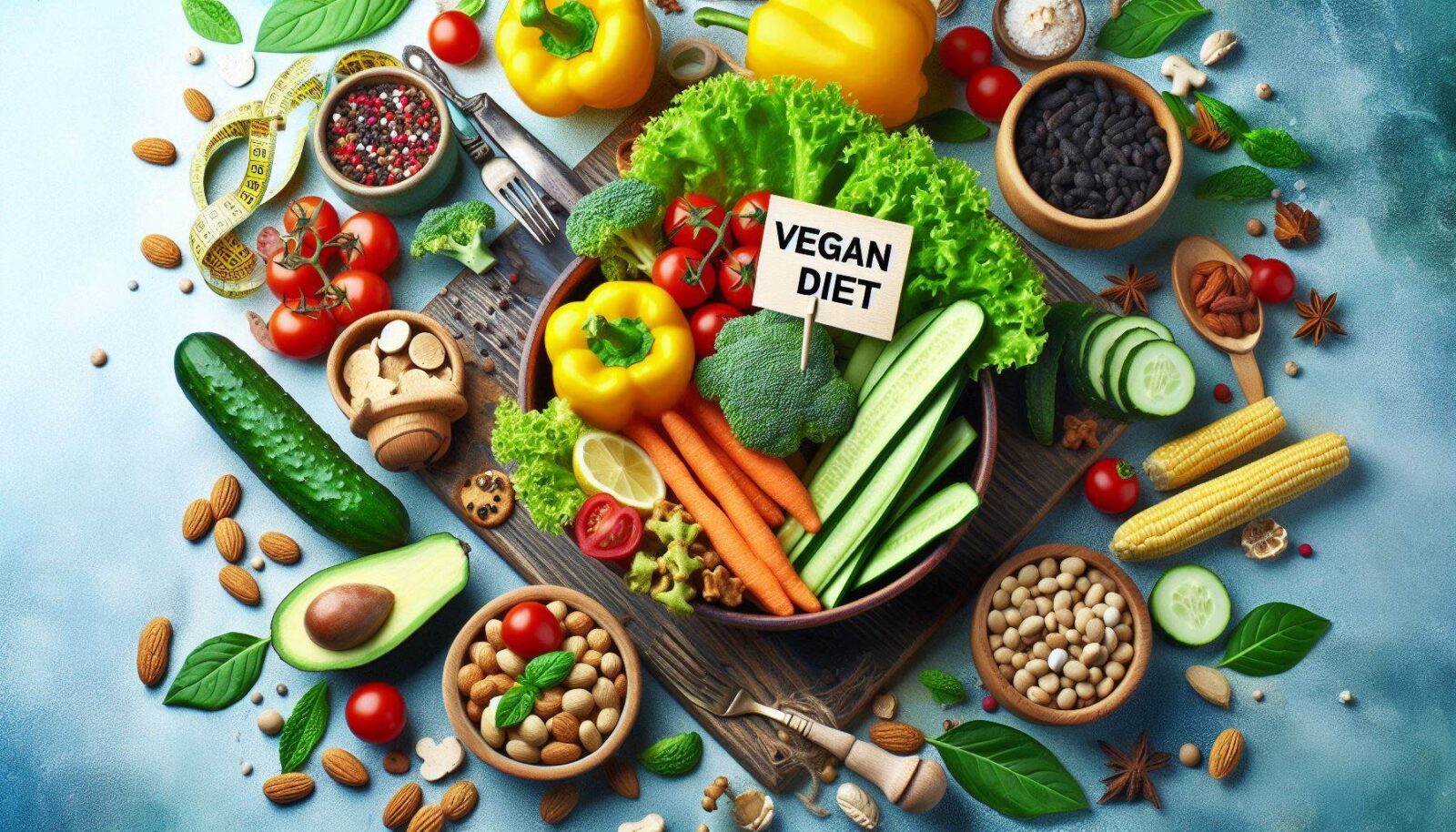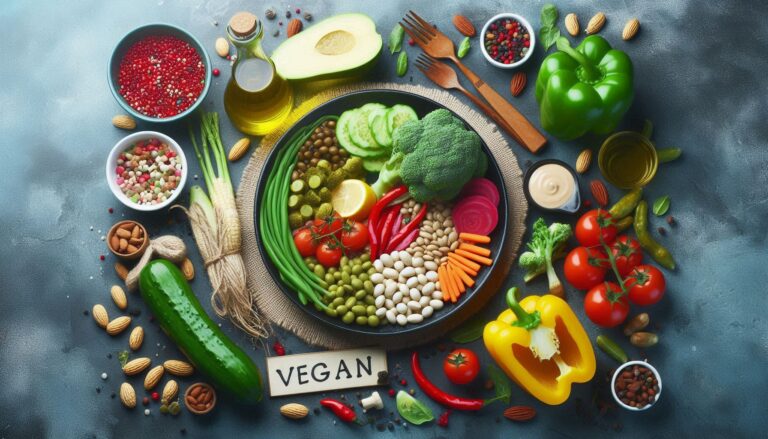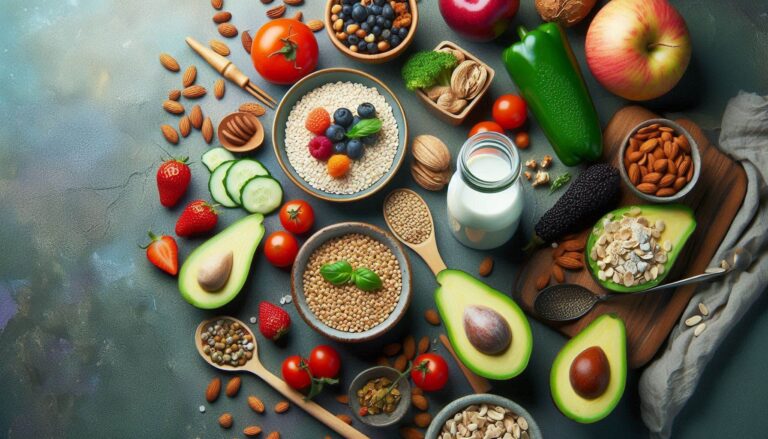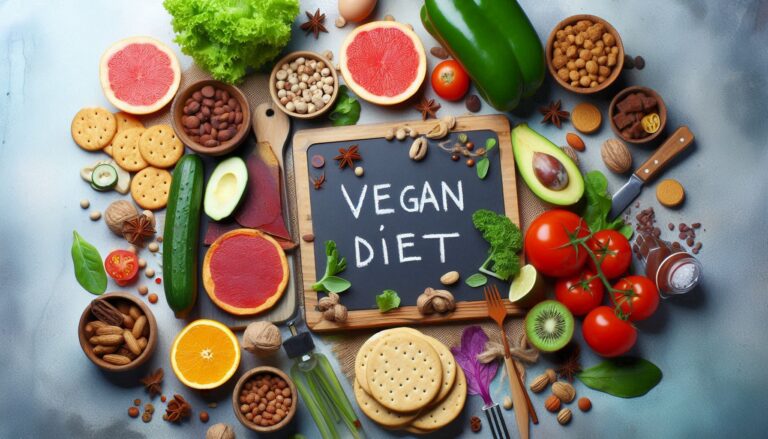A comprehensive guide to the vegan diet, including benefits, challenges, and tips for a successful transition. Explore delicious vegan recipes and discover the best vegan cookbooks for beginners and experienced cooks.
Introduction:
In recent years, the vegan diet has gained significant popularity, with people adopting this lifestyle for various reasons, including health concerns, environmental sustainability, and ethical considerations. This comprehensive article delves into the world of veganism, exploring what it entails, its benefits, potential challenges, and practical tips for a successful transition.
What is a Vegan Diet?
A vegan diet is a dietary choice that excludes all animal products, including meat, poultry, fish, eggs, dairy, and any ingredients derived from animals. This means vegans consume only plant-based foods such as fruits, vegetables, grains, legumes, nuts, and seeds.
Benefits of a Vegan Diet
Embracing a vegan lifestyle offers numerous health benefits, including:
- Improved Heart Health: A vegan diet is rich in fiber, fruits, vegetables, and whole grains, which can help lower cholesterol levels, reduce blood pressure, and decrease the risk of heart disease.
- Weight Management: Plant-based foods are generally low in calories and high in fiber, making it easier to maintain a healthy weight.
- Reduced Risk of Chronic Diseases: Research suggests that a vegan diet may lower the risk of type 2 diabetes, certain types of cancer, and other chronic diseases.
- Enhanced Energy Levels: The nutrient-dense nature of plant-based foods can provide sustained energy throughout the day.
- Improved Skin Health: A vegan diet is often associated with healthier skin, as it can reduce inflammation and promote a glowing complexion.
- Environmental Benefits: Animal agriculture is a significant contributor to greenhouse gas emissions, deforestation, and water pollution. By adopting a vegan diet, you can help reduce your environmental impact.
Get The Complete Plant Based Recipe Cookbook — 200+ Vegan Recipes
Challenges of a Vegan Diet
While the vegan diet offers many benefits, it may also present some challenges, such as:
- Nutrient Deficiency: Without careful planning, a vegan diet may be deficient in certain nutrients, including vitamin B12, iron, zinc, calcium, and iodine. It is crucial to include a variety of plant-based foods and consider supplementation to meet your nutritional needs.
- Social Challenges: In a society that often revolves around meat-centric meals, vegans may face social challenges, such as finding suitable dining options or navigating family gatherings.
- Limited Access to Vegan Products: Depending on your location, you may have limited access to vegan alternatives for certain products, such as cheese, milk, and meat substitutes.
Tips for a Successful Transition to a Vegan Diet
If you’re considering adopting a vegan lifestyle, here are some tips to help you make a smooth transition:
- Start Gradually: Don’t feel pressured to make drastic changes overnight. Gradually incorporate more plant-based foods into your diet and explore vegan alternatives for your favorite dishes.
- Educate Yourself: Learn about the nutritional requirements of a vegan diet and discover creative ways to incorporate plant-based proteins, healthy fats, and essential vitamins and minerals.
- Find Inspiration: Seek out vegan cookbooks, blogs, and social media accounts for recipe ideas and inspiration.
- Join a Vegan Community: Connecting with other vegans can provide support, encouragement, and valuable resources.
- Be Patient: Building a new dietary habit takes time. Be patient with yourself and celebrate your successes along the way.
Frequently Asked Questions (FAQs)
Q: Can children follow a vegan diet?
A: Yes, children can follow a vegan diet if their nutritional needs are met. It is essential to work with a registered dietitian or healthcare provider to ensure proper growth and development.
Q: Are vegans at risk of protein deficiency?
A: No, vegans can get sufficient protein from a variety of plant-based sources, including legumes, beans, nuts, seeds, and whole grains.
Q: What are some good vegan protein sources?
A: Lentils, chickpeas, tofu, tempeh, beans, nuts, seeds, and quinoa are all excellent sources of plant-based protein.
Q: How can I ensure I get enough calcium on a vegan diet?
A: Incorporate calcium-rich plant-based foods like fortified plant milk, tofu, fortified cereals, leafy greens, and sesame seeds into your diet.
Q: What are some vegan alternatives for dairy products?
A: There are many vegan alternatives available for dairy products, including plant-based milk (almond, soy, oat, coconut), vegan cheese, yogurt, and ice cream.
Q: Can pregnant and breastfeeding women follow a vegan diet?
A: Yes, pregnant and breastfeeding women can follow a vegan diet with proper planning and supplementation. It is crucial to work with a healthcare provider to ensure the health of both mother and child.
Best Vegan Cookbooks
If you’re looking for inspiration and delicious vegan recipes, here is one of the highly recommended vegan cookbooks:
Conclusion
Embracing a vegan lifestyle can be a rewarding journey that benefits your health, the environment, and animals. By understanding the basics of a vegan diet, overcoming potential challenges, and seeking inspiration from vegan cookbooks and communities, you can successfully transition to a plant-based lifestyle and enjoy all the benefits it has to offer.
Discover more from TheBeautyOfChange
Subscribe to get the latest posts sent to your email.




